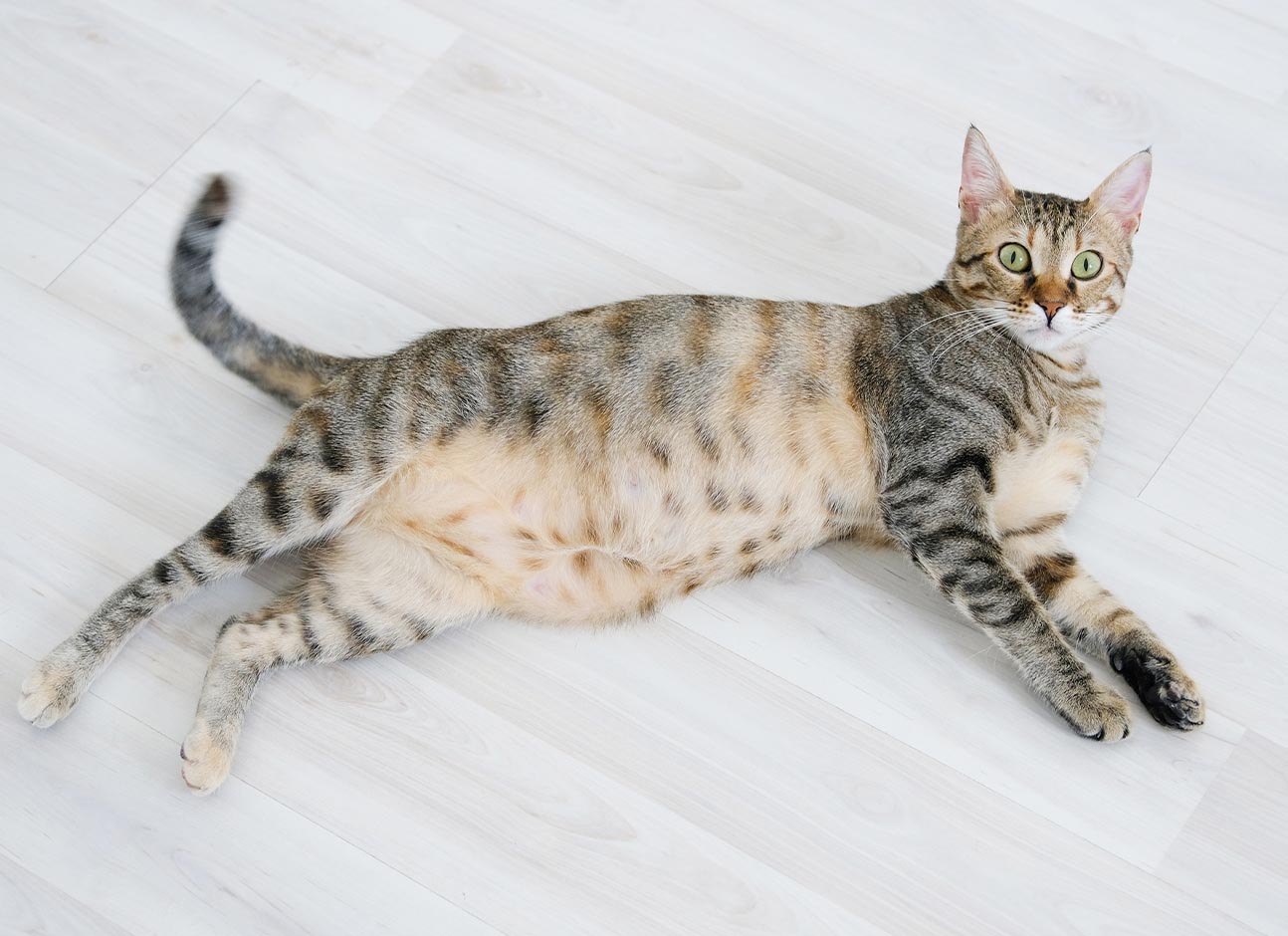Most cat owners who do not breed their pets opt for sterilization, which prevents unwanted behaviors and the challenges of caring for and finding homes for kittens. However, if you have not sterilized your cat and suspect pregnancy, it is essential to know the duration of the pregnancy process. Cat pregnancy typically lasts around two months, but the exact duration can vary depending on the breed and other factors.
Duration of Pregnancy by Breed:
Siamese: 61-66 days
British Shorthair: 61-65 days
Abyssinians: 61-66 days
Burmese: 61-64 days
Korats: 61-63 days
Larger litters usually give birth earlier, with a standard period of two months for a litter of two kittens. Premature birth is considered if it occurs before the 60th day. In such cases, it is highly recommended to consult a veterinarian for an examination and to prevent hypothermia.
If you are unsure about the pregnancy term, contact a veterinary clinic for an ultrasound examination.
Signs of Pregnancy:
Loss of estrus: This is the primary indication of pregnancy. Even a fearful cat living in a group may not show external signs of estrus, but it will still occur.
Changes in nipple appearance: Bright, almost red color, hair parting near the mammary gland, and an increase in size.
Behavioral changes: Lethargy, loss of appetite after conception, and temperamental changes.
A veterinarian can help determine pregnancy through ultrasound or special blood tests for hormone levels.
If you have a reasonable suspicion of conception but the cat is in excellent health, consult a veterinarian, as false pregnancies are common in cats. The veterinarian will accurately determine the presence of pregnancy and provide recommended pet care tips.
Signs of False Pregnancy:
False pregnancies may exhibit increased anxiety or complete apathy, excessive sleep, reduced activity, maternal instinct, the pet following the owner closely, and arranging a place for kittens without apparent reasons. Other signs include enlarged mammary glands and abdomen, colostrum production, increased appetite, digestive problems, and vomiting. False pregnancies can last about one and a half months and can lead to increased risks of pathologies such as mastitis and tumors.
Estrus During Pregnancy:
Estrus during pregnancy is relatively common, usually occurring during the third week after mating. It should not be a cause for concern, but consulting a veterinarian is advisable due to a lack of progesterone.
Treatment of Microsporia in Pregnant Cats:
Pregnancy and lactation can stress the immune system, leading to a predisposition to fungal infections such as microsporia. Symptoms include hair loss outside of molting, the appearance of bald spots and bare areas, dandruff, exfoliation, and itching. Care for a sick pet should be based on specialist recommendations, and it is essential to consult a veterinarian for advice on the most effective and safe treatment against the disease.
Manifestation of Eclampsia:
Eclampsia can occur due to a drop in calcium levels in a pregnant cat’s body, most commonly during feeding. Symptoms include dry skin, bared teeth, twitching of the hind legs, and excessive saliva production. The disease can lead to seizures, and intravenous calcium injections can save the cat in such situations. The veterinarian may prescribe calcium supplements to be added to the cat’s food.
To avoid various pathologies during pregnancy, it is advisable to use specialized feeds.
